Attracting Nature’s Acrobats – Grey Squirrels!
Love them or hate them, there’s no denying Grey Squirrels can be playful and fun to watch. They are nature’s daredevils and acrobats, climbing the thinnest branches and leaping from tree to tree; they put even the greatest trapeze artists to shame.
So whereas some people consider the Grey Squirrel a pest and lay the demise of the native Red Squirrel at its feet, others love to attract them to the garden.
If you fall into this category, then this blog is for you! We’ve got a range of fool proof ways to entice these rambunctious rodents to a tree near you so you can watch their aerial antics for as long as you wish.
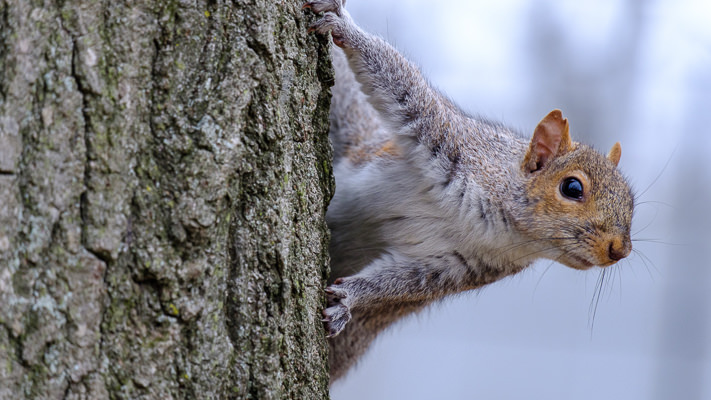
But first, a bit of history …
The Grey Squirrel in the UK
Most people are aware that Grey Squirrels are not native to the UK. Grey Squirrels were first imported into the UK in 1876 from North America as an ornamental species for parks and stately homes. This continued until around 1930 when the damage the animal causes to indigenous flora and fauna was recognised, and releasing Grey Squirrels into the wild was outlawed.
The majority of these releases were in the south of England but the Grey Squirrel quickly spread northwards into the Midlands, followed by Yorkshire and Lancashire, and Cumbria. The species was first recorded in Scotland in 1892 when a pair were released at Loch Long. Other releases followed and now the country has several established populations of Grey Squirrel, particularly in the southern half.
Grey Squirrels are blamed for a huge decrease in the native Red Squirrel population and as a result, many people consider them to be pests. This occurred because Grey Squirrels are larger than Red Squirrels, eat the same food as them, and are better at competing for that food. The simple fact is that as Grey Squirrel populations grew, they ate the food the Red Squirrels would eat and bred more quickly. This caused Red Squirrels to have to live in places where food was more scarce which reduces the number of young they could have, leading to the population falling. Over time, Grey Squirrels replaced the native Reds.
Grey Squirrels can also cause damage to trees, crops, and other flora and fauna, another reason why some people are not keen on them.
How to Attract Squirrels to Your Garden
But this blog is for Squirrel lovers and those who enjoy watching their daredevil tricks. And to do that, you need to attract them to your garden. So, we’ve put together a list of things you can do to make your garden more squirrel friendly. Carry out some of these tips, and your outdoor space will be teeming with these cheeky characters in no time.
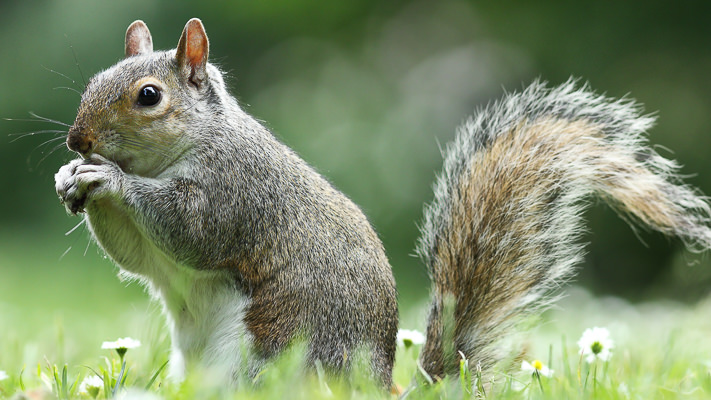
Provide Things They Can Climb
Everyone knows that Squirrels love to climb, so having things in your garden or backyard they can climb is essential. Don’t worry, this doesn’t have to be a 100ft pine tree, it can be some trellis fencing, small bushes or shrubs, or wooden poles specifically put up for squirrels to use.
Whatever you choose, or whatever your garden can support, if you want to attract squirrels, having a vertical component to your outdoor space is essential.
Plant More Trees
That said, if you do have a garden that is big enough for trees, and you’re intending on staying there, then planting some will attract squirrels once the sapling grows.
Trees, bushes, and shrubs are the natural habitat of squirrels, especially pine trees, so the more you have, the more squirrels you’re likely to see.
Provide Natural Cover
Have you ever disturbed a squirrel while out for a walk? What things do you notice? Firstly, they’re very fast runners and climbers if startled. But another thing people often report is that if they’re not moving, they’re very difficult to see. This is because squirrels are masters of using natural cover to disguise their location.
Providing such cover in your garden will give squirrels confidence to be there. They will know that if a predator comes along, such as a fox or a cat, they can run, climb, and hide.
The best way to do this is to let a part of your garden grow wild. Tall grass, shrubs, deadwood, leaves, etc, all provide excellent cover for squirrels and they will naturally gravitate towards this if you let it develop.
Provide Food
Unsurprisingly, like birds and other mammals, providing food is one of the best ways of attracting squirrels to your garden.
A squirrel’s diet comprises of acorns, bulbs, tree shoots, fungi, nuts, roots, and pine cones.
So, if you’re going to put food out to attract squirrels to you garden, it makes sense to provide the foods that match their natural diet most closely. You can collect acorns at the right time of the year if you have the time to, but nuts in their shells are a great option as the squirrel has to get into them to eat the treat inside. Large Monkey Nuts are also good – our Monkey Nuts are aflatoxin tested before entering production – or you could choose a complementary blend such as our Chipmunk & Squirrel Mix.
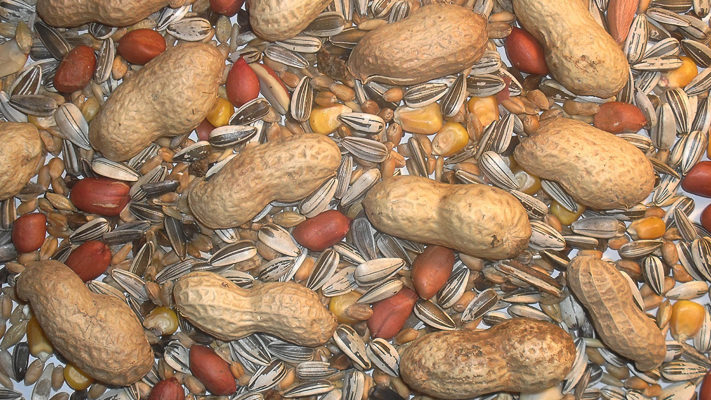
This contains a range of healthy ingredients providing balanced nutrition for squirrels. Ingredients include wheat, small dark striped sunflower, peanuts, monkey nuts, whole maize, natural groats and barley.
You can provide the food in a special squirrel feeder, such as our easy to fit Grasmere Squirrel Feeder which has been thoughtfully designed to provide the best feeding environment for Squirrels.
The Perspex window allows the Squirrel to see the food, whilst also being removable for easy cleaning. The self-closing lid prevents the roof from sitting at an upright 45-degree angle. This means the food will remain dry whilst still allowing enough room for the Squirrels to access the bottom of the feeder.
If you really want to enjoy watching Squirrels, put the feeder in a place which is a challenge for them to reach – that way you’ll get to see them at their cunning and acrobatic best!
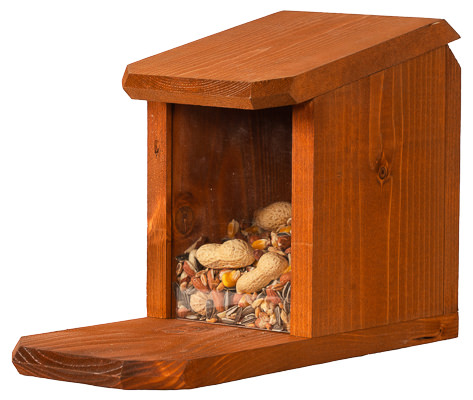
Provide Fresh Water
Just like birds and other animals, it is important to provide fresh water for squirrels to drink. Putting out a bowl of water out is a great way to encourage squirrels. However, be careful to ensure the sides of the bowl are not too tall. Remember, squirrels can climb just about anything. You don’t want them to climb up a bowl and fall in the water, only to be unable to get out.
Also, take care to keep the bowl clean and put out fresh water every day. Dirt, vegetation, and faeces can soon build up in the water and if left, turn it into a potential source of disease.
Provide Nesting Boxes Big Enough for Squirrels
If you want to attract squirrels to actually live in your garden, then you will need to provide shelter. A squirrel’s natural home is called a dray which they build in the tops of trees, and they look like large birds’ nests. Unsurprisingly then, like birds, they will also bed down in a nest box.
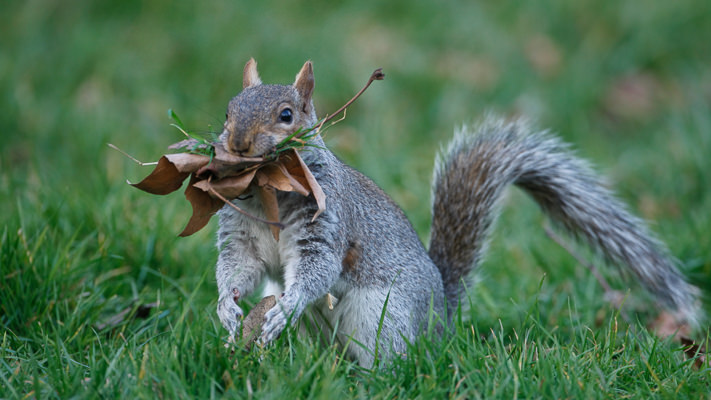
Ensure the nest box you choose can fit a Grey Squirrel in, as they are significantly bigger than your average garden bird, and perhaps put some treats in it to entice a squirrel in.
Also, as squirrels build their drays high in the tree, to attract them a nest box must be at least 3m or 10 ft high. Make sure it is well attached to a sturdy part of the tree, otherwise it will move around in high winds.
Buy a Squirrel Call
Finally, if you’re really serious about attracting squirrels, you can actually buy calls to mimic the natural sounds they make and call other squirrels towards you.
Animal calling like this is fun but challenging and some people spend hours perfecting their calls.
Just one word of caution though, if your neighbours see you they might think you’ve gone a bit crazy, but if that doesn’t bother you then get calling – you never know who, or what, might answer!
To find out more about our Chipmunk & Squirrel Mix or our Grasmere Squirrel Feeder, get in touch via our web chat window.
Our recent posts giving advice and guidance on wild birds
Starlings and one of nature’s finest spectacles
Reading Time: 8 minutes Despite being one of the most well-known garden birds in the UK, the Starling is actually one of the species we need to be the most concerned about? They are considered to be one of the fastest declining birds in the UK and have been cropping up on the UK Red List of Conservation Concern for more than 20 years now. In this article we take a look at that mesmerising phenomena that is murmuration, as well as their wider behaviour.
A Guide to British Wagtails
Reading Time: 9 minutes Wagtails are delightful little birds and are so called because they do just that – wag their tails frantically as they go about their business. In Great Britain, we have three native species – the Pied Wagtail, the Grey Wagtail, and the Yellow Wagtail, which is a summer migrant. In this blog, we take a look at each of them, to find out more about these charming and animated characters.
Drum Roll for the Woodpecker, One of the UK’s Best Loved Birds
Reading Time: 10 minutes One of the most intriguing and evocative sounds in British woodlands is the Woodpecker tapping on tree trunks. But is the UK home to any other varieties of Woodpecker and if so, do they drum? In this blog, we take a closer look at one of Britain’s best loved and most iconic birds and unveil the secrets of their unique behaviour.






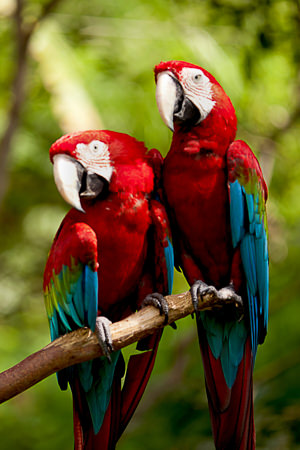
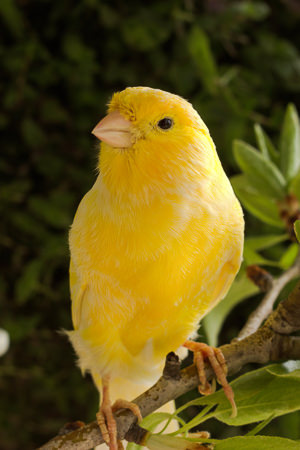
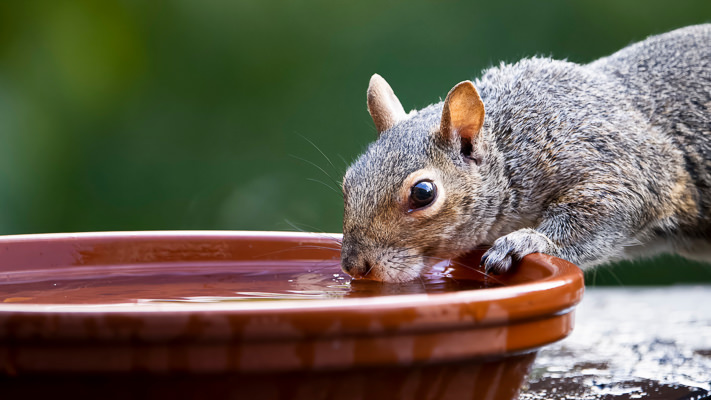

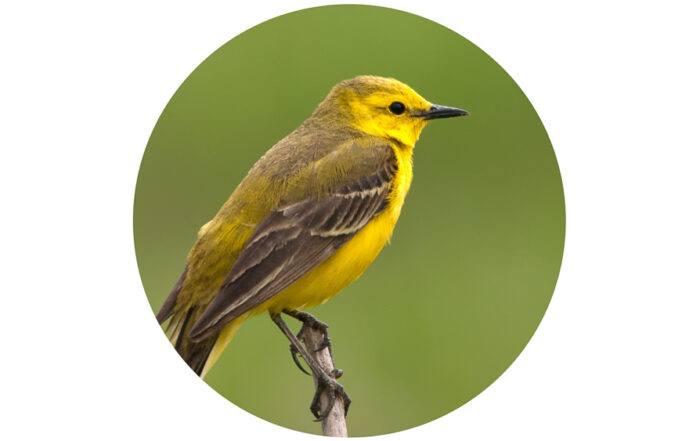
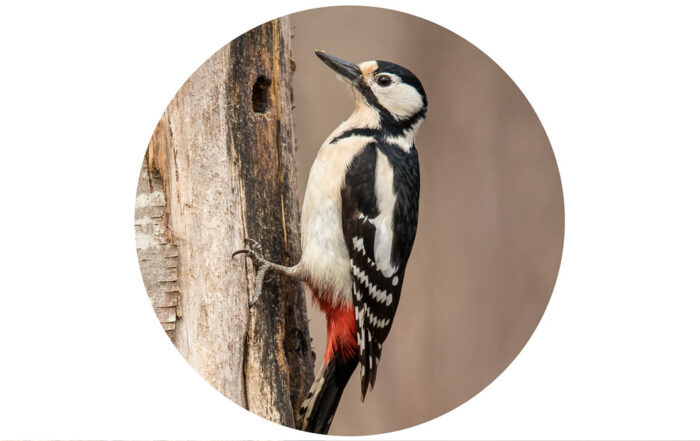
Leave A Comment